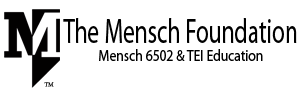Since we have many definitions of our words or terms we need to define our terms.
One definition of philosophy is “the speculative inquiry in the knowledge of mankind”. The early philosophers began to wonder about what was known and unknown. They and all philosophers speculate on the knowledge and understanding of mankind, questioning, and looking for answers to all sort of questions.
Embedded is defined as “that which is placed within”.
Intelligence for living things is defined as “the ability to learn, understand, and deal with new situations”. For non-living things intelligence is defined as that which provides for self-assembly of atomic structures from energy with available information.
Belief is defined here as “an opinion stronger than an impression and less strong than positive knowledge of the truth or reality of something”. Belief precedes knowledge and understanding.
Science is defined as “knowledge as distinguished from ignorance or misunderstanding”. Basically, all “sciences” are established to analyze the world in and around us.
Engineering is “the practical application of science, technology, and mathematics”, completing STEM. A simpler definition for engineering would be “the practical application of information”.
Matter is defined “as the substance of which a physical object is composed”.
The body of a living or non-living thing is defined as “the physical whole of an organism”.
The mind of a thing is the “intellectual ability” of that thing.
The soul of a thing is “the immaterial essence or animating principle of an individual life”.
The word wonder is defined as “a cause of astonishment or surprise”. Socrates, the first philosopher, was known to have said: “Philosophy begins in wonder.”
To be curious is to “have a desire to investigate and learn”.
A life form or living organism is defined as “a state of an organism characterized especially by capacity for metabolism, growth, reaction to stimuli, and reproduction”. Another way of relating to a living organism is that which has the ability to self-assemble.
Assemble means “to bring together for a particular purpose”, in the case of a life form, to live. The self-assembly of our Sun could be considered huge self-assembly as is the Earth, moon, stars, planets, and other phenomena of the universe.
Evolution means “the process of change especially from a lower to a higher state”.
Chemistry is “the science that deals with the composition, structure, and properties of substances”.
Atoms are “the smallest particle of a chemical element that can exist alone or in combination”.
The first matter could have been a hydrogen atom, one electron and one proton decided to hang-out together. The energy that keeps the electron and the proton together is an energy of attraction. Living things have scaled this energy of attraction, philosophically speaking, for not only individual survival but also for survival of the species, reproduction.
Magnetism is a mysterious form of energy and “the science that deals with the phenomena of a material with the ability to attract”, as possessed by a magnet.
Gravity is another mysterious form of energy of attraction of the mass of a celestial body, such as Earth, for bodies close to it.
A particle is defined as “a very small bit of matter”.
An energy or wave packet is “a small bundle” of energy. All things both living and non-living are forms of energy. Since all living and non-living things are built from chemical elements or matter, we need to recognize that all matter is comprised of atoms.
Notice that all atoms must have had an embedded intelligence for not only self-assembly from energy but also for survival. It is here proposed that “energy decided to matter”. Here we use two definitions of matter one the above definition and a second definition, “a subject of interest or concern”. Energy decided to both become matter and become a subject of interest and concern, of wonder.
Notice in the “Periodic Table of Elements” that there are 91 naturally occurring elements or atomic structures and man-made atomic structures totaling 118 elements.
Again, philosophically speaking, the energy conversion to and from matter must be occurring everywhere in the universe and beyond, for all time without spatially ending.
Anthropology is “the science of human beings”.
Theology is “the study of religions, religious ideas, and religious beliefs”.
Mythology is the “study of imaginary or unverifiable person or thing, usually legendary narrative that presents part of the beliefs of a people or explains a practice or natural phenomenon”. Mythology pre-dates religions, philosophy, and the sciences of the mysteries of Life.

